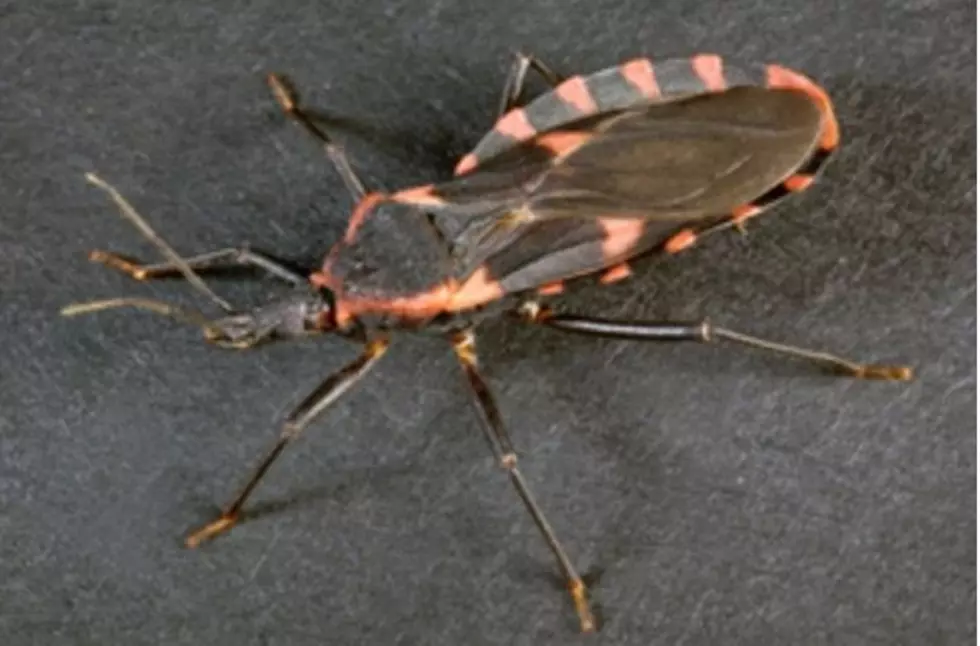
CDC Says Deadly ‘Kissing Bug’ Has Invaded NJ
The Center for Disease Control is warning New Jerseyians that the potentially deadly Triatomine bug, aka 'Kissing Bug', has made its way into the Garden State.
The name "kissing bug" might sound cute, but it is far from it. It got the nickname for its tendency to bite people on the face. Most people will have an allergic reaction that could include severe redness, itching, swelling, welts, hives, or, rarely, anaphylactic shock.
The bite and reaction are one thing, but this bug is extra gross because it poops on your face. If that feces gets rubbed into the bite, or your mouth, or your eye, it gets much worse: Chagas disease. Symptoms include fever, fatigue, body aches, headache, rash, loss of appetite, diarrhea, and vomiting, and can even potentially be fatal. Your pets are susceptible to Chagas too, so it's time to be extra vigilant.
According to the CDC, kissing bugs can be found both indoors and outdoors, and they've provided a list of ways to keep them out:
- Seal cracks and gaps around windows, walls, roofs, and doors.
- Remove wood, brush, and rock piles near your house.
- Use screens on doors and windows and repair any holes or tears.
- If possible, make sure yard lights are not close to your house (lights can attract the bugs).
- Seal holes and cracks leading to the attic, crawl spaces below the house, and to the outside.
- Have pets sleep indoors, especially at night.
- Keep your house and any outdoor pet resting areas clean, and periodically check both areas for the presence of bugs.
Another way this bug sucks? You don't want to squish it if you see one. The CDC says if you find a bug you suspect is a triatomine, you should resist the urge to stomp on it; instead, place a container on top of the bug, slide the bug inside, and fill it with rubbing alcohol or, if not available, freeze the bug in the container. Then, you may take it to your local extension service, health department, or a university laboratory for identification. Surfaces that have come into contact with the bug should be cleaned with a solution made of 1 part bleach to 9 parts water (or 7 parts ethanol to 3 parts water).
The CDC has all the information you need about Chagas and triatomine bugs.
More from 105.7 the Hawk:




